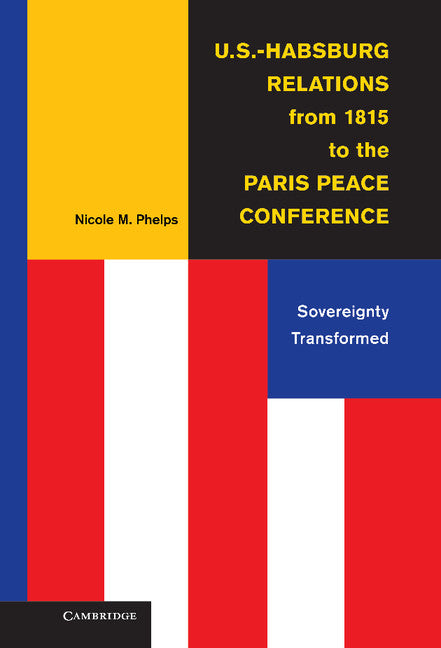Freshly Printed - allow 8 days lead
Couldn't load pickup availability
U.S.-Habsburg Relations from 1815 to the Paris Peace Conference
Sovereignty Transformed
This study chronicles US-Habsburg relations from the early nineteenth century through the aftermath of World War I.
Nicole M. Phelps (Author)
9781107005662, Cambridge University Press
Hardback, published 12 August 2013
306 pages
22.9 x 15.2 x 2.1 cm, 0.57 kg
'Nicole Phelps tells a fascinating story of US-Habsburg relations throughout the nineteenth and early twentieth centuries … [this is] a prime example of an innovative study in international history, one that, it is hoped, sets the stage for more original, archival-based research in the field of Austria's and Austria-Hungary's foreign relations.' Franz Adlgasser, Austrian History Yearbook
This study provides the first book-length account of US-Habsburg relations from their origins in the early nineteenth century through the aftermath of World War I and the Paris Peace Conference. By including not only high-level diplomacy but also an analysis of diplomats' ceremonial and social activities, as well as an exploration of consular efforts to determine the citizenship status of thousands of individuals who migrated between the two countries, Nicole M. Phelps demonstrates the influence of the Habsburg government on the integration of the United States into the nineteenth-century great power system and the influence of American racial politics on the Habsburg empire's conceptions of nationalism and democracy. In the crisis of World War I, the US-Habsburg relationship transformed international politics from a system in which territorial sovereignty protected diversity to one in which nation-states based on racial categories were considered ideal.
Introduction: the Habsburg empire and the United States in transnational perspective
1. Community and legitimacy: the diplomatic culture of the great power system
2. Becoming a great power: US-Habsburg diplomatic relations and the integration of the United States into the great power system
3. Protection and the problems of dual citizenship: US consuls in the Habsburg empire
4. The limits of state-building: Habsburg consuls in the United States and the protection of lives and property
5. Racial identity and political citizenship: American challenges to Habsburg sovereignty
6. Giving up on Austria-Hungary: the end of the great power system and the shift to the nationalist successors
7. Establishing sovereignty: the process of aligning race, place, and citizenship
Conclusion.
Subject Areas: Modern history to 20th century: c 1700 to c 1900 [HBLL], History of the Americas [HBJK], European history [HBJD]


